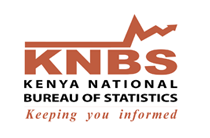 Consumer Price Index (CPI) increased by 1.02 per cent from 134.25 points in December 2012 to 135.62 points in January 2013. The overall rate of inflation increased to 3.67 per cent from 3.20 per cent in the same period.
Consumer Price Index (CPI) increased by 1.02 per cent from 134.25 points in December 2012 to 135.62 points in January 2013. The overall rate of inflation increased to 3.67 per cent from 3.20 per cent in the same period.
The Kenyan Shilling appreciated against worlds’ major currencies; the Sterling Pound, the Japanese Yen, the South African rand and Tanzanian shilling to exchange at an average of KSh 138.589, 139.019, 96.289, 9.7006 and 18.4452 respectively, as at the end of January 2013. However, the shilling depreciated against the US dollar, Euro and the Ugandan shilling.
The average yield rate for the 91-day Treasury bills, which is a benchmark for the general trend of interest rates, decreased from 8.25 per cent in December 2012 to 8.097 in January 2013. The inter-bank rates remained at 5.89 during the period. The Nairobi Stock Exchange share index (NSE 20) increased from 4,133 points in December 2012 to 4,417 points in Jan 2013, while the total number of shares traded rose substantially by 12.3 per cent from 462 million shares traded to 519 million shares traded during the same period.
The total value of shares traded at the NSE increased from KSh 7.6 billion to KSh 8.5 billion. Broad money supply (M3), a key indicator for monetary policy formulation, expanded from KSh 1,727.3 billion in December 2012 to 1,729.6 billion in January 2013. In contrast, Money and quasi-money (M2) decreased from KSh 1,469.0 billion to KSh 1,455.7 billion over the same period. Gross Foreign Exchange Reserves and Net Foreign Exchange Reserves inflated to 635.1 billion and KSh 349.6 billion respectively, over the same period. Read More
 Consumer Price Index (CPI) rose from 140.29 points in August 2013 to 142.82 points in September 2013. The overall rate of inflation increased from 6.67 per cent to 8.29 per cent during the period. The Kenyan shilling depreciated against all major currencies except the US dollar and Japanese Yen exchanging at an average of KSh 87.41, KSh 138.54, KSh 116.67, KSh 88.14, KSh 8.77, KSh 29.41 and KSh 18.48 against the US dollar, sterling pound, Euro, Japanese Yen, South African rand, the Ugandan and Tanzanian shilling respectively, as at the end of September 2013.
Consumer Price Index (CPI) rose from 140.29 points in August 2013 to 142.82 points in September 2013. The overall rate of inflation increased from 6.67 per cent to 8.29 per cent during the period. The Kenyan shilling depreciated against all major currencies except the US dollar and Japanese Yen exchanging at an average of KSh 87.41, KSh 138.54, KSh 116.67, KSh 88.14, KSh 8.77, KSh 29.41 and KSh 18.48 against the US dollar, sterling pound, Euro, Japanese Yen, South African rand, the Ugandan and Tanzanian shilling respectively, as at the end of September 2013.

 Consumer Price Index (CPI) increased from 139.28 points in April 2013 to 139.52 points in May 2013. The overall rate of inflation fell from 4.14 per cent to 4.05 per cent during the period
Consumer Price Index (CPI) increased from 139.28 points in April 2013 to 139.52 points in May 2013. The overall rate of inflation fell from 4.14 per cent to 4.05 per cent during the period 
 Consumer Price Index (CPI) increased by 1.02 per cent from 135.62 points in January 2013 to 136.59 points in February 2013. The overall rate of inflation increased by 0.78 percentage points to 4.45 per cent from 3.67 per cent in the same period. The Kenyan Shilling appreciated against worlds’ major currencies; the US dollar, the Sterling Pound, the Euro, Japanese Yen and the Ugandan shilling to exchange at an average of KSh 86.2361, 130.736, 113.453, 93.2524 and 30.6312, respectively, as at the end of February 2013. However, the shilling depreciated against the South African rand and the Tanzanian shilling.
Consumer Price Index (CPI) increased by 1.02 per cent from 135.62 points in January 2013 to 136.59 points in February 2013. The overall rate of inflation increased by 0.78 percentage points to 4.45 per cent from 3.67 per cent in the same period. The Kenyan Shilling appreciated against worlds’ major currencies; the US dollar, the Sterling Pound, the Euro, Japanese Yen and the Ugandan shilling to exchange at an average of KSh 86.2361, 130.736, 113.453, 93.2524 and 30.6312, respectively, as at the end of February 2013. However, the shilling depreciated against the South African rand and the Tanzanian shilling. Consumer Price Index (CPI) increased by 1.02 per cent from 134.25 points in December 2012 to 135.62 points in January 2013. The overall rate of inflation increased to 3.67 per cent from 3.20 per cent in the same period.
Consumer Price Index (CPI) increased by 1.02 per cent from 134.25 points in December 2012 to 135.62 points in January 2013. The overall rate of inflation increased to 3.67 per cent from 3.20 per cent in the same period. Consumer Price Index (CPI) increased by 0.69 per cent from 133.33 points in November 2012 to 134.25 points in December 2012. The overall rate of inflation declined to 3.20 per cent from 3.25 per cent in the same period..
Consumer Price Index (CPI) increased by 0.69 per cent from 133.33 points in November 2012 to 134.25 points in December 2012. The overall rate of inflation declined to 3.20 per cent from 3.25 per cent in the same period..